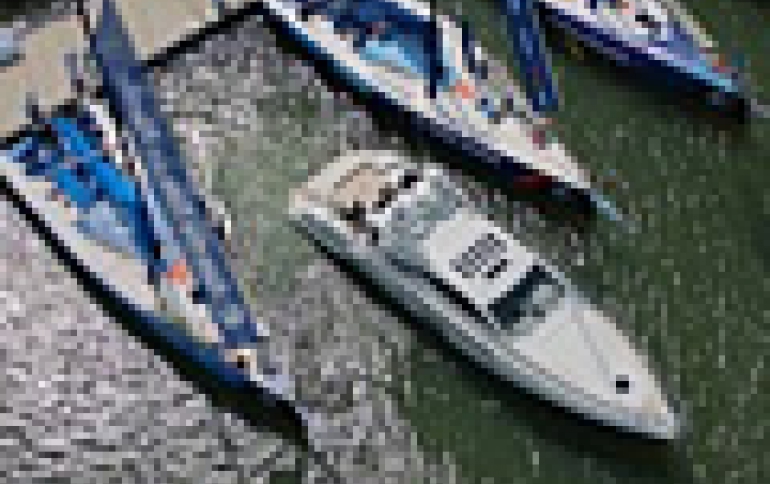
Volvo Penta Unveils Self-docking Yacht Technology
Aiming to tackle one of boating's most stressful maneuvers - docking - Volvo Penta has revealed a self-docking solution, targeted for launch in 2020.
In a live demonstration of Volvo Penta's self-docking system, a 68 ft yacht fitted with the technology skillfully maneuvered itself into the tightest of spaces between two of the Volvo Ocean Race 65 racing yachts.
"Our IPS system has already taken great strides in making docking easier, and this new self-docking feature takes that process one important stage further. Its sensors and onboard computers react in milliseconds to changing wind and sea conditions, constantly making micro adjustments in power and steering angle of the IPS drive to keep the boat on its intended course into a safe berth. If necessary, the docking process can be paused, and the system will hold the boat stationary in the water. Even in changing sea conditions it can make the sea appear to stand still," said Bjorn Ingemanson, President of Volvo Penta.
Similar 'self-parking' technology in the automotive world, Volvo Penta's docking system is not designed to be fully autonomous. While the system will also feature surround sensors that provide anti-collision alert and avoidance, the captain needs to remain at the helm during the docking process, ready to intervene if necessary.
Automating the docking process involves three distinct phases. Firstly, as the boat nears its berth, the system recognizes that it has entered a 'catch zone' and sends out a signal to the captain that it is ready to dock. Once the captain has activated the self-docking function, the boat is then (aided by GPS), automatically moved into a 'docking ready' position. Once the captain has initiated the final stage, the system uses a combination of GPS and sensors, both those fitted onboard and additional sensors fitted to the destination dock to automatically move the boat into a safe berth.
The forthcoming system is that it will be available not only for the latest IPS equipped boats - a retrofit version of the function is also planned, something that would make an attractive upgrade to many boat owners.
The initial focus for Volvo Penta's self-docking system will be individuals who can install the system on their own private docks. Longer term, it is believed that the technology will be of considerable interest to harbors and marinas, allowing IPS-equipped boats fitted with the system to dock in complete safety and accuracy. An additional future scenario for the self-docking system is that it could be integrated with Volvo Penta's Easy Connect application (app). The app could allow users to check if the nearest marina is equipped with the appropriate self-docking technology - or even perhaps use it to secure a parking space.
The Volvo Group has been carrying out research into autonomous vehicles and the transport systems of the future for several years. The group has produced a number of examples of self-driving concept vehicles for use in restricted areas, such as mines and ports.





















